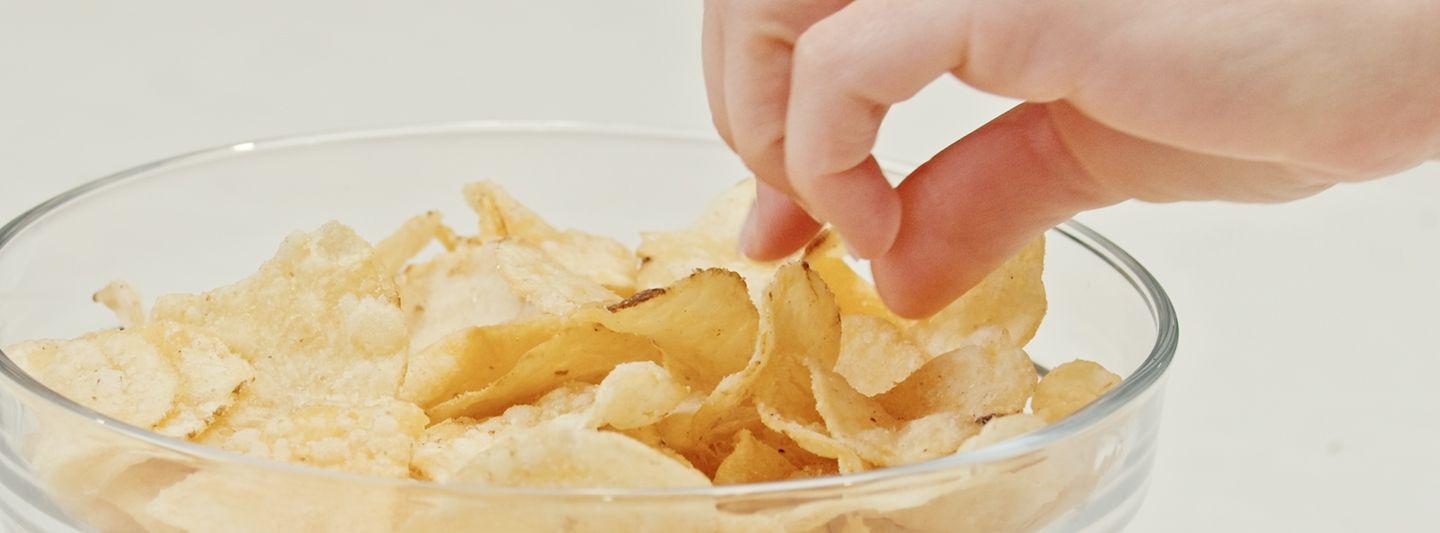How to stay steady and snack on the road
Keeping your glucose steady while you’re on the move can be tricky, but taking the right snacks with you can make a difference. Learn more here.
Emily Shiffer,
Contributing Writer
Andrea Givens, MS, RD, CSSD,
Medical Affairs
Published:
April 14, 2025
Updated:
December 03, 2025
Read time:
10 minutes
When you’re on the go, whether you’re travelling for work, on holiday or have a long commute, it’s a good idea to be prepared with healthy snacks in case hunger strikes.
Unfortunately, many options available at shops and vending machines are highly processed foods low in vitamins and minerals, but packed with free sugars, simple carbohydrates, and other additives1 that can send your glucose soaring. These glucose spikes are often followed by a crash that can lead to a dip in energy and craving more starchy foods.2
The best on-the-go snacks ideally contain protein, fibre, and/or healthy fats to provide energy and fill you up without the glucose roller coaster. And while stocking your handbag or rucksack with healthy options can help to set you up for success, we understand life happens and sometimes you need to buy something while out and about.
Below, we explore some healthy snack options that can help keep your glucose steady while you’re on the go. Plus, we’ve outlined some tips for how to plan ahead and avoid those glucose spikes.
Let’s break it down:
Snacks that are high in protein, fibre, and/or healthy fats can help keep your glucose steady if you need to eat something on the go.3
Planning and preparing snacks to take with you can make it easier to stick to your healthy eating goals when you’re out and about.4
Wearing a continuous glucose monitor (CGM) can help you understand the effects that different snacks have on your glucose levels and help you make healthier choices that work for your body.
Start Lingo today for just £59
Learn how your body responds to food and exercise with a 2-week plan*, no commitment.
Buy now
Snack ideas for travelling
Planning ahead can help you stick to your goals and keep your glucose steady. It’s a good idea to prepare healthy snacks to take with you or do some research to explore the available options to purchase while you’re away from home.
Limiting the number of glucose spikes you experience can provide health benefits, including improved energy and hunger.5,6 Try the options below the next time you need to hit the road.
Protein-rich options
Prioritising protein is a good way to find glucose-friendly snacks. Protein is typically more satiating than carbs or fat, which means it can make you feel fuller for longer and keep cravings at bay.7 Some protein-rich, travel-ready snacks include:
Hard-boiled eggs
Beef jerky
Dried edamame beans
Smoked or fresh fish such as tuna, mackerel, or salmon
Sliced lean meats such as chicken, turkey, or ham
Protein bars (check the labels as some can be high in added sugars)
Greek yoghurt
Cottage cheese
Full-fat Greek yoghurt is a good snack option as it’s rich in fats and protein, but it needs to remain chilled until you’re ready to eat it (or buy it while you’re on the go).
Dried seaweed is also a convenient, nutrient-rich, shelf-stable snack that’s easy to enjoy on the go. One serving (~15 grams) has about 5 grams of protein—less than the protein-rich options above—but it’s easy to pair with other healthy snacks like nuts and sliced vegetables.
Not only is protein satiating and can help avoid glucose spikes, but it’s also a necessary nutrient to help your metabolism thrive.
Medical and nutrition experts from Lingo recommend eating about 1.5 grams of protein per kilogram of desired bodyweight. If your goal weight is 168 kilograms, that means eating 102 grams of protein each day (note: this is about twice the current recommended daily allowance set by the government).8
While this may feel like a large target to hit, protein-rich snacks can help supplement your regular meals to hit your daily protein intake.
Snacks containing fibre
Snacks containing simple or refined carbohydrates are digested and absorbed quickly, which can result in a notable glucose rise. Choosing snacks that are high in fibre is a more glucose-friendly option.
Like protein, fibre can help keep you feeling full and your glucose more stable.9,10 What’s more, many vegetable sources of fibre also come with an array of other beneficial nutrients.
Snacks containing fibre include:
Carrot sticks
Cucumber sticks
Celery
Bell peppers
Cherry tomatoes
Roasted chickpeas
Wholegrain crackers
Some high-fibre snacks like wholegrain crackers are also high in carbs, so it’s a good idea to pair with a source of protein or fat like cheese or turkey slices to mitigate a glucose spike.
Healthy fats
Although fat was viewed as something to avoid, healthy fats like monounsaturated and polyunsaturated fats found in nuts, seeds, and olives are essential for a healthy diet. While some high-fat foods contain valuable nutrients, they can also be calorie dense, so it’s important to be mindful of portion sizes.
Snacks that contain healthy fats can help to slow down the rate at which other nutrients, such as carbs, are digested—this in turn can help keep glucose steady.3
However, research has shown that adding fats to carbs alone results in a hyperpalatable product (think butter on a baguette), meaning it becomes easy to over-eat.11 Adding fat + fibre (or, even better, fat + fibre + protein) can help you keep glucose steady3 and absorb important nutrients.12
Snack options containing healthy fats include:
Hard-boiled eggs
Cheese
Avocado
Olives
Mixed nuts
For example, try a glucose-friendly pairing of 30 grams of almonds and 30 grams of cheese to help quiet your hunger without leading to a spike and crash.
Trail mix
Try making your own trail mix with pecans, walnuts, cashews, and pumpkin seeds.
If you want to sweeten the mix, you could add some dark chocolate (over 80% cacao), toasted coconut, or some dried fruit like unsweetened blueberries.
Keep this in a container in a dark, dry place. If you’re feeling extra organised, you could also divide the mix into small portions that are travel-ready.
With the right ingredients, trail mix can be a fantastic glucose-friendly snack containing protein, fibre, and healthy sources of fat. This can help fill you up and provide steady energy.
How can a continuous glucose monitor help?
Lingo is a continuous glucose monitor (CGM), a device that measures your glucose levels in real time. Lingo has an app that shows how your glucose levels change in response to the foods you eat as well as glucose patterns over time.
Wearing a CGM can help you see how certain snacks influence your glucose levels, and in turn their impact on your energy, hunger, cravings, and more. Since everyone responds differently to foods and other lifestyle habits,13,14 having access to your unique glucose data with Lingo can help you assess the best options for your individual metabolism.
Planning for a trip without glucose spikes
Whether your family is heading to the airport or hitting the road, a little planning can go a long way in keeping your glucose levels steady. Packing snacks ahead of time can make it easier to stay on track and avoid impulse food choices.
Research has shown that planning meals in advance is associated with healthier eating habits.4
If you know what snacks you’ll be eating—or where to find them—that’s one less thing to stress about while travelling (which is already a pretty stressful time!). Bonus: reducing stress can help limit glucose spikes.15
So, if packing your own snacks isn’t an option, take a few minutes to look up healthy snack spots along your route.
And if you can bring food from home, consider investing in portable containers and insulated bags to keep everything fresh. Non-perishable options like nuts or jerky sticks are also great to stash in your car or tote bag for easy access.
Snacks on the go for kids
If you have kids, you know snacks are essential—especially when you’re travelling. One study found that for children between 12 months and 6 years old, snacks make up about 25-30% of their daily energy intake.16 That's a big chunk, which means the quality of those snacks really matters.
Planning ahead with nutritious options can help keep kids energised and avoid the ups and downs that come with sugar-heavy or ultra-processed snacks. While the snack ideas mentioned earlier can work for many kids, getting them excited about vegetables instead of cookies might take a little creativity.
Here are some tips to make healthy snacks more exciting for kids:
Chop vegetables and other healthy snacks into small pieces that are quick and easy to eat, allowing kids to have fun eating with their hands.
Let kids take part in preparing the snacks (e.g. helping place them into containers, counting the number of different colours); this could make fruit and vegetables seem more exciting.
Pick a range of brightly coloured fruits and vegetables to make their snacks more visually appealing (while also varying the plant nutrients they’ll consume).
Focus on presentation; try filling the individual compartments of a muffin pan with different combos of chopped vegetables, fruit, nuts, and cheese for a different creative approach.
Provide a range of dips to give kids more space to be creative with their snacks (but be sure to look for minimal ingredients and low-sugar options if buying these from the shop).
When it comes to hydration, be mindful of what children are drinking. A lot of the excess sugar that children consume comes from what they drink—around a quarter of children’s sugar intake comes from sugar-sweetened beverages.17
A final note from Lingo
Travelling can leave you in a pinch when hunger strikes, which could lead to snack choices that spike your glucose levels. Aim to take some nutrient-rich options that contain protein, fibre, and minimal levels of simple carbs to keep you satiated and help manage your glucose while you’re away from home.
You can see the impact that different snacks have on your glucose with Lingo. The personal data that this CGM provides can help you assess which choices will lead to steadier glucose levels.
The Lingo Glucose System is intended for users 18 years and older not on insulin. It is NOT intended for diagnosis of diseases, including diabetes.
The Lingo program does not guarantee that everyone will achieve the same results as individual responses may vary. Consult your healthcare professional before making changes to your diet or exercise regimen or if you have an eating disorder or a history of eating disorders.
© 2025 Abbott. All rights reserved. The biosensor shape and appearance, Lingo, and related brand marks are marks and/or designs of the Abbott group of companies in various territories. Other marks are the property of their respective owners.
ALB-02604 v2.0
Published:
April 14, 2025
Updated:
December 03, 2025
Read time:
10 minutes


Emily Shiffer is a contributing lifestyle and wellness writer at Lingo. She has worked as a writer for over 10 years, covering health, wellness, fitness, and more in publications such as Women’s Health and Runner’s World. Currently residing in Charleston, South Carolina, Emily enjoys instructing barre, surfing, and long walks on the beach with her miniature dachshund, Gertrude.


Andrea Givens, MS, RD, CSSD, is a Senior Medical Affairs Specialist and Health Coach at Lingo. Andrea has a passion for empowering individuals to leverage their unique physiology to optimize performance and health. She’s been a registered dietitian since 2010 and has been a board-certified specialist in sports dietetics since 2017. She holds master's degrees in both nutrition science and exercise physiology from San Diego State University.
More to explore on the blog

Boosting your energy levels with glucose management
Can managing your glucose levels help boost your energy? We share practical steps to increase energy levels and gain energy fast when feeling tired.
February 24, 2025|7 minutes

What are ultra-processed foods? Definition and common food examples
Learn the differences among processed foods in our modern diet, including what ultra-processed foods (UPF) are, examples, and how often you should be eating them.
February 03, 2025|9 minutes